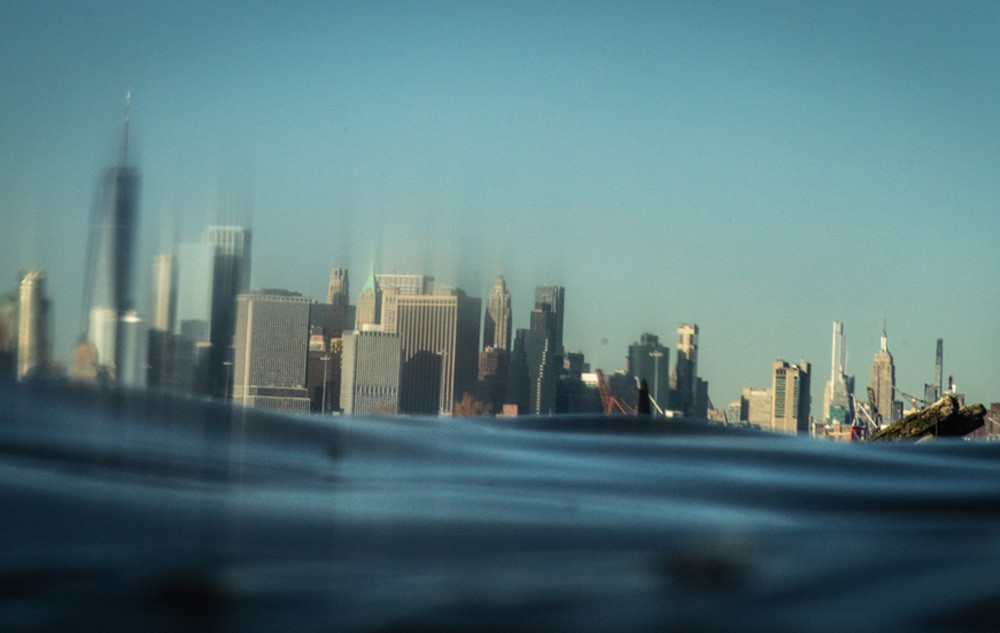Carlos Menchaca can’t help but laugh as the term “zoning” crosses his lips in an interview for “Emergent City,” a word that seems so small as it leaves his mouth and so big in the context of the district of Sunset Park in Brooklyn that he represents as a city council member. Introduced only moments earlier as someone raised in public housing to appeal to the large community of working class immigrants in his run for office as part of Kelly Anderson and Jay Arthur Sterrenberg’s absorbing study of the slow persistent creep of gentrification in a waning industrial hub, Menchaca now seems like someone searching for justifications not to sell them all out as the council inches towards changing the zoning laws to allow Jamestown, a real estate developer from Atlanta that’s been gaining a bigger footprint in New York with projects around the city, to rezone their recently acquired waterfront property from its initial intention full of factories to a commercial space with retail and hotels, a move that would convert a number of traditionally better-paid manufacturing jobs for far more fickle gigs in hospitality and likely lead to rental spikes.
One can see why Sunset Park is ripe for urban renewal when the buildings aren’t much to look at these days, but the hum of sewing machines and other equipment that continue to rumble make them a welcome sight to many current residents of Sunset Park, who complain they didn’t have a seat at the table when the 16-building complex on the waterfront was initially sold to Jamestown. But the need for the city to approve rezoning becomes an opportunity to have a voice and likewise, it provides Anderson and Sterrenberg with an unusually clean entry point into such a typically messy subject when “Emergent City” elucidates the convoluted conversation around the Industry City project that was bound to leave all parties frustrated. With cameras rolling from 2013 on, the observational doc has an ear for Jamestown’s vague and likely empty jargon, with its leader Andrew Kimball muddying the water with slippery language about improving the area – when pressed by Menchaca, he refuses to call a 900,000 square-foot space marked for retail a mall – and various surrogates parroting talking points that never seem directed towards people that actually have to live in Sunset Park, but those who nonetheless preside over its fate.
However, while Jamestown could make for an easy villain, Anderson and Sterrenberg resist oversimplifying the situation and show how difficult it is for various factions that all are likely against the project to unite against a common cause, whether it’s because their issues with the redevelopment don’t exactly align or because of natural cultural divisions. (Given the number of concerned immigrants, some community meetings are conducted entirely in Spanish or Chinese.) Still, what’s at stake is clear from a tour of Innovation Alley, the food hall and hipster hangout that Jamestown has already established as a glimpse of what they’d like Industry City to become as a whole with a WeWork-esque private club renting out floating tables for $700 a month (but the lemon water is free) and artisanal ice cream stands that might as tell current residents “pack your bags,” and while Jamestown has the ear of city officials as one entity, the large number of Sunset Park denizens against the rezoning can actually feel like it’s working against them when there’s no way they can all be heard at public events.
Although Kimball is apt to trot out statistics about how much of Sunset Park is underutilized, it is the room for compromise that emerges as the most valuable and neglected real estate there is in “Emergent City” as potentially productive conversations are shut down before they can begin and endless meetings appear to be set to check a box as part of the process rather than actually draw insight from any engagement. However, the standstill proves to be stimulating when Anderson and Sterrenberg present the obstacles towards progress so starkly, aided by really effective and subtle use of expository graphics seamlessly integrated into the image without taking any attention away from it, and as a coalition gradually starts to form on screen, the full picture that emerges is equally invigorating when whether or not Industry City makes good on their own blueprints, you can see the architecture of how modern cities are designed and who they are made for.
“Emergent City” opens on April 25th in New York at the DCTV Firehouse with Q & As following most screenings.




